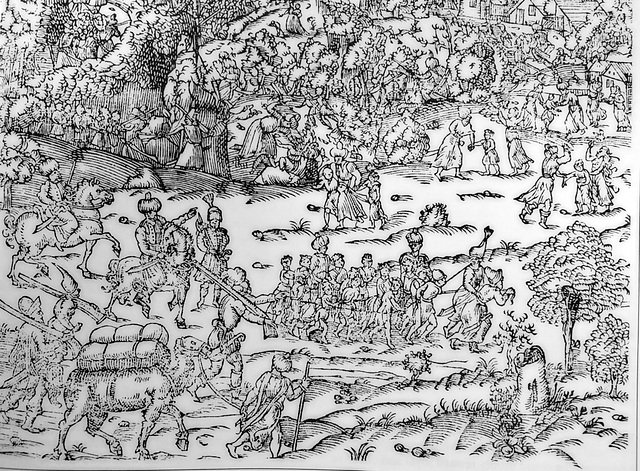Keywords
Authorizations, license
-
Visible by: Everyone -
Attribution + non Commercial
- Photo replaced on 13 Jun 2020
-
51 visits
The Ottoman Slave Tax


This contemporary drawing shows Ottoman officials rounding up male Christian children in the Balkans. The children became part of a special slave corps, which served the sultan for life as soldiers and administrators. The slave tax and the slave corps were of great importance to the Ottoman Turks in the struggle with Austria (The British Library)
- Keyboard shortcuts:
Jump to top
RSS feed- Latest comments - Subscribe to the comment feeds of this photo
- ipernity © 2007-2024
- Help & Contact
|
Club news
|
About ipernity
|
History |
ipernity Club & Prices |
Guide of good conduct
Donate | Group guidelines | Privacy policy | Terms of use | Statutes | In memoria -
Facebook
Twitter

Indeed the top ranks of the bureaucracy were staffed by the sultan’s slave corps. Every year the sultan levied a “tax” on one of the three thousand male children on a conquered Christian populations in the Balkans. These and other slaves were raised in Turkey as Muslims and trained to fight and to administer. The mos talented slave rose to the top of the bureaucracy; the less fortunate formed the brave and skillful core of the sultan’s army, the so called janisary corps.
As long as the Ottoman Empire expanded, the system worked well. As the sultan won more territory, he could impose his slave tax on larger populations. Moreover, he could amply reward loyal and effective servants by letting them draw a carefully defined income from conquered Christian peasants on a strictly temporary basis. For a long time Christian peasants in eastern Europe were economically exploited less by the Muslim Turks than by Christian nobles, and they were not forced to convert to Islam….. Page 546